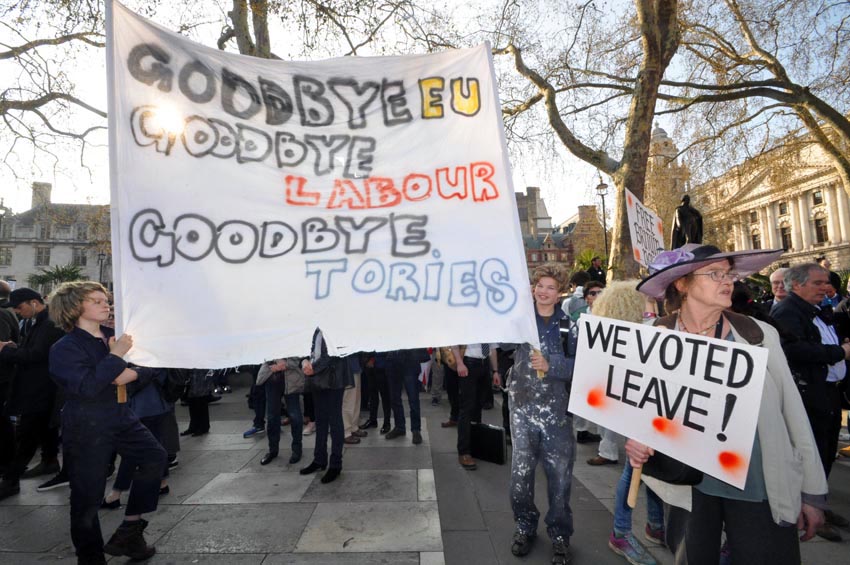
EUROPEAN Council President Donald Tusk has said he has received ‘promising signals’ from Irish PM Leo Varadkar that a Brexit deal is still possible.
His comments came as Brexit Secretary Steve Barclay and EU chief negotiator Michel Barnier resumed talks in Brussels, following a meeting between Varadkar and Boris Johnson on Thursday afternoon.
Both sides called the Johnson-Varadkar discussion ‘very positive’, as Johnson sought a new ‘compromise’.
The UK is due to leave the EU at 23:00 GMT on 31 October.
Barclay’s and Barnier’s ‘technical’ talks come ahead of a crunch EU summit on 17 and 18 October, which is seen as the last chance for the UK and the EU to agree a deal ahead of the Brexit deadline.
On 19th October, there is to be a special session of the House of Commons, at which Johnson is now expected to be willing to see a postponement of the leaving date, so that the compromise talks can continue and a compromise solution be achieved.
It is understood that Johnson has already made concessions on the issue of the north of Ireland remaining in the EU customs union, and who is to be in charge of this programme.
On Thursday, Johnson and Varadkar held a one-to-one discussion – described by both as ‘very positive and very promising’ – at Thornton Manor, Merseyside.
Afterwards, Varadkar told reporters the talks were at a ‘very sensitive stage’ but he was now ‘convinced’ the UK wanted a deal, adding: ‘I do see a pathway towards an agreement in the coming weeks.’
However, the deal was to be concluded in a week!
Varadkar refused to be drawn on what ‘concessions’ had been made by either side during his meeting with Johnson, while Downing Street has not commented on Irish press reports suggesting ‘significant movement’ on the UK prime minister’s part over the customs union.
Speaking on a visit to Cyprus, Tusk said the UK had not ‘come forward with a workable, realistic proposal’, but added he had received ‘positive signals’ from Varadkar that a deal was still possible.
‘Of course there is no guarantee of success and time is practically up but even the slightest chance must be used,’ he added. ‘A no-deal Brexit will never be the choice of the EU.’
However, there were, he said, still issues over ‘consent and democracy’ and ensuring there is no customs border between northern Ireland and the Republic of Ireland.
It is believed that PM Johnson, who has managed to reconcile voting for the May deal with a ‘willingness to die in a ditch’ rather than agree to a postponement of the leaving date, is now willing if necessary to see the 31 October ‘Leave’ date scrapped to allow further talks, and more compromises.
There is no doubt that once more the Brexit referendum result is under attack.
It is now up to the UK’s workers to see that it is indeed pushed through and that the UK leaves the EU on October 31.
The only way to make sure that Brexit happens is for workers to organise a general strike to take Britain out of the EU on October 31, and to remove the Johnson government and replace it with a workers government that will bring in a socialist planned economy.